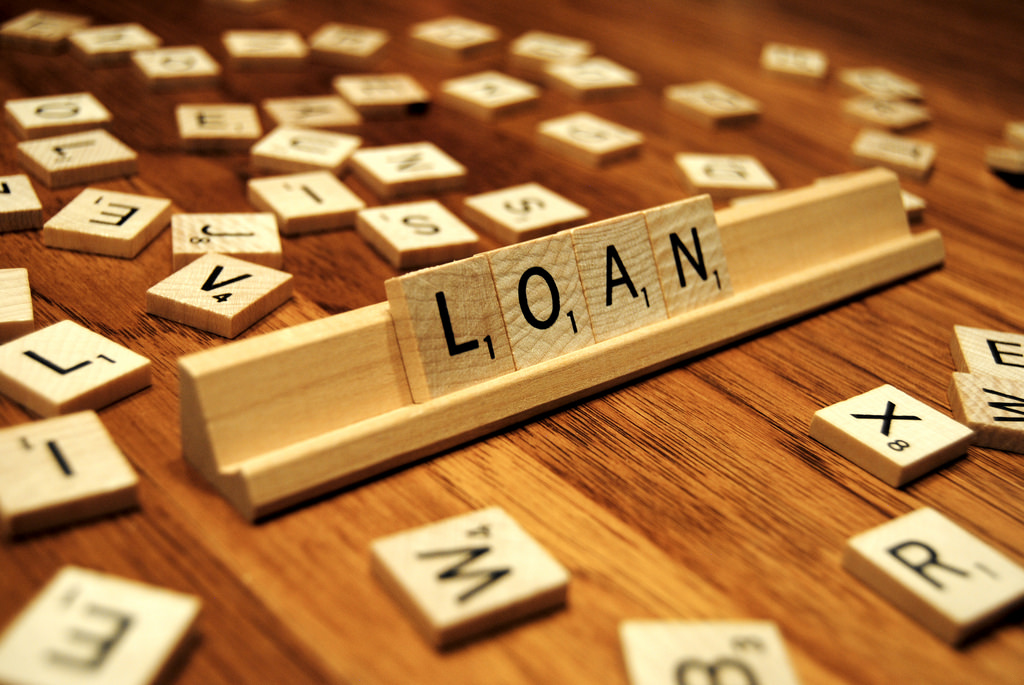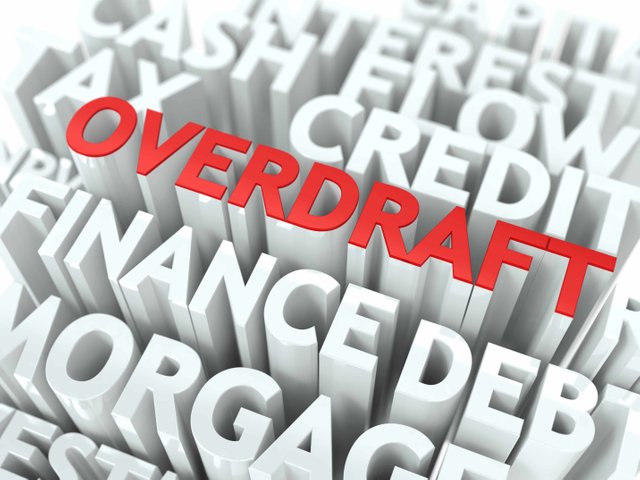COMPARING LOAN AND OVERDRAFT
Loan and overdraft are terms which are used in the context of banking, where banks lend money to borrowers at a specified rate of interest, depending on their duration. Business individuals or current account holders seek overdraft and loan facility from banks to meet their constant demand; while banks provide simple and effective ways of financing the growth of a business.
In this stance, overdraft and loan has to be understood, inclusive are the advantages, disadvantages; similarities and differences.
What is loan?
Loan is a fixed amount of money borrowed for a fixed term, with regular fixed repayment and fixed interest payment within a specified timeframe. Loan can be referred to as the capital borrowed from the bank. To the layman, loan is any amount of money borrowed between a stipulated timeframe.
Loan is shown on the balance sheet as a long-term liability, while interest on loan is recorded as an expense on the profit or loss account. Any capital repayment will reduce the long term liability on the balance sheet. If you do not pay back a loan or you miss a payment, you could damage your credit rating or get into further financial trouble.
There are different types of loans and they are: student loan, mortgage loan, personal loans, small business loan etc. It should be noted that most banks have a fixed charge on their loan.
Advantages of loan
Individuals and companies have the opportunity to borrow large amounts of money.
The interest rate charged on loans are low.
The regular repayment helps individual’s cash flow plan.
You may be able to tailor the loan to match the cash flow of the project you are using the loan to finance.
You can match the term of a loan to the life of an asset you want to purchase. For example, you can finance the purchase of a machine which will have a working life of five years using a (five-years or less) loan. By the time the machine is obsolete, the loan would have been paid off.
Disadvantages
The bank often imposes legally binding covenants before agreeing to a loan. For example, the bank might insist that you keep your overall gearing ratio (debt to equity ratio) below a certain level. If you breach these covenants, the bank will be entitled to immediate reimbursement.
You have to pay back in the stated time or risk further financial problems.
You do not have access to the portion of a loan which you have repaid, unless you apply for a new loan.
The bank will usually require a fixed charge or some other form of security.
What is overdraft?
Overdraft can be defined as the facility to withdraw or avail a certain limited amount of money from your account based on your eligibility, as fixed by the bank, based on your transactions. The facility is usually given by banks to business establishments or individuals against fixed deposit or other securities. A bank overdraft is essentially short-term borrowing, intended to tide the business temporarily.
The overdraft is not for a specific amount of money but the business is given a maximum level of cash that it may draw against the overdraft. A business should arrange overdraft facilities to ensure that the bank will honour cheques even though there is insufficient fund in the account to cover the value of the cheques drawn.
Advantages of an overdraft
Overdraft is flexible , the amount can be change within limit.
Interest is only paid on amount borrowed.
It helps to meets daily obligations.
Suitable for short term borrowing needs.
It is easy and quick to arrange, with immediate access to fund once the facility has been agreed upon.
There is no charge for clearing the overdraft earlier than expected.
Disadvantages of an overdraft
Overdraft cannot be used for large borrowing
Interest rate charge on overdraft are high and not predictable as it depends on a variable interest rate and on amount overdrawn on each day of charging period
If the overdraft is secured and the business fails to repay, the lender may take action to seize the security provided for the facility
Bank can change limit at any time or ask for money to be paid back sooner than expected.
The overdraft has to be regularly renegotiated, depending on how long it is needed for.
The bank will want to check if your creditworthiness has not become worse.
Differences between loan and overdraft
Loan refers to a long term debt given by the bank to the borrower whereas overdraft refers to a short term facility given by the bank to the account holder to withdraw money from his or her account up to a certain limit fixed by the bank.
Loan has a long term arrangement between the bank and borrower and the period of the loan is between 3 years to 25 years whereas overdraft is usually for short period of time as agreed by the bank and borrower.
In the case of loan, interest rate is charged on the whole amount, but in the case of overdraft, interest rate is charged only on the amount overdrawn and not on the total limit of the overdraft.
Bank loan is shown on the balance sheet as a long-term liability whereas overdraft is shown as a short term liability in the balance sheet of the company.
Loan involves lot of formalities and documentation whereas overdraft requires less formalities and documentations.
Loan is taken when one requires lot of money like housing loan, car loan and education loan whereas overdraft is taken for small amount of money to meet our daily needs. It is worthy of note that overdraft is generally taken by current account holders of the bank.
Loan is repaid in equal instalment and cannot be called for at any time whereas overdraft can be paid in lump sum at any time.
Similarities between loan and overdraft
They are both recorded in the company balance sheet as liabilities.
Interest is charged on both loan and overdraft.
 They both require documentations and formalities.
They both require documentations and formalities.
In both loan and overdraft, the bank will check the creditworthiness of their customer.
In conclusion, overdraft is a temporary facility obtained by the companies to meet their ultra-short term cash shortage or requirement.The permanent working capital should be financed by long term loan having lower interest rates. 
Hi guys, I’m looking for an expert’s opinion on considering a mortgage. I’ve finally got approved for a mortgage, but its interest is a little bit high IMO.. I’ve been considering trying to find another company, but I don’t know whom I can trust. My friend suggested I go to an advisor or broker to solve this problem in the best way, but it means extra money spent. I found Mortgage Broker Cambridge https://Cardiffmoneyman.com , and this place must be a trusty one due to their experience. How do you think I can do this alone or need their help? I just need more opinions
This insightful comparison between loans and overdrafts sheds light on their distinct features and implications. For those considering loan options, here's a https://samedayfin.com/loans-like-spotloan.php helpful resource. It provides a comprehensive overview of various loan services, aiding individuals in making informed financial decisions. Keep up the excellent work in providing valuable financial insights!